For the last year and a half, Senior Meal Program Coordinator and classically-trained chef David Salerno has been working towards a goal of removing “ultra-processed” foods from his program. This goal has evolved out of his personal standards for the meals he prepares as a professional chef. “I believe that those of us in the culinary field have a responsibility to nourish people,” he explains. “To prepare food that is nutritionally dense, balanced, thoughtful, responsible, and tasty.” For David, this has meant going above and beyond his job description, increasing expectations for his program and redefining what a nutritious Senior Meal lunch looks like.
Defining “ultra-processed” foods and their impacts
So what are “ultra-processed” foods, exactly? David uses the NOVA Food Classification System as a guide. NOVA defines ultra-processed foods as “industrial formulations made entirely or mostly from substances extracted from foods (oils, fats, sugar, starch, and proteins), derived from food constituents (hydrogenated fats and modified starch), or synthesized in laboratories from food substrates or other organic sources (flavor enhancers, colors, and several food additives used to make the product hyper-palatable).” In other words, these are foods that contain many additives and other ingredients that you wouldn’t find at home. Typically, these foods are higher in fat, salt, and sugar.
Overindulging in ultra-processed foods is linked to numerous health risks. A recent study of over 22,000 individuals found that those who eat large quantities of ultra-processed foods are at a higher risk of an early death and death from heart disease. These foods have also been linked to obesity, type 2 diabetes, and colon cancer. Despite their many health risks, ultra-processed foods make up nearly 58 percent of the average American adult’s calories.
It’s clear that these foods should be consumed in moderation, but for the many seniors that face mobility issues and live on fixed incomes, cooking meals from scratch using whole ingredients is out of reach. By removing ultra-processed foods from the Senior Meal program, David is ensuring that participants receive at least one nutrient-dense, clean meal a day. “For some,” David explains, “this meal is a bonus, and for others it’s a necessity. Either way, I take it as a personal and professional responsibility to provide meals that begin with the most basic of raw ingredients.”
Facing challenges
For David, the biggest challenge in achieving this goal is finding the time. The Senior Community Meal program is complex. Three days a week, 200+ lunches are prepared at the HIP kitchen and then served at the Lake City Community Center, where both sit-down and to-go style meals are offered to seniors and other individuals who want a meal. In addition, the program delivers a portion of meals to homebound seniors in the community. With so many moving parts, the program relies heavily on volunteers and staff, plus HIP’s partner organization Lake City Seniors, to be successful. This year, HIP has significantly increased its staff and volunteers for the program, which has been a huge help in freeing up the time that David needs to research, test, and execute “scratch” recipes, or recipes that are made from scratch without any additives.
David and the Senior Meal team have already successfully removed many ultra-processed items from the program, such as pre-made salad dressings, canned sauces, and desserts from box mixes. But the journey is far from over. Just recently, David started experimenting with baking bread products instead of buying pre-made bread loaves, pita, and pizza dough. Store-bought bread is made with highly-processed flour and is filled with preservatives to enhance its shelf life. Baking bread from scratch is much healthier, but it’s a time-intensive process which requires preparing the dough in advance to let it rise, then shaping and baking it. Once baked, it needs to be consumed within a few days. Because the process takes more time and kitchen space than the program’s regular prep shifts allow for, David has added new volunteer shifts specifically for bread baking.

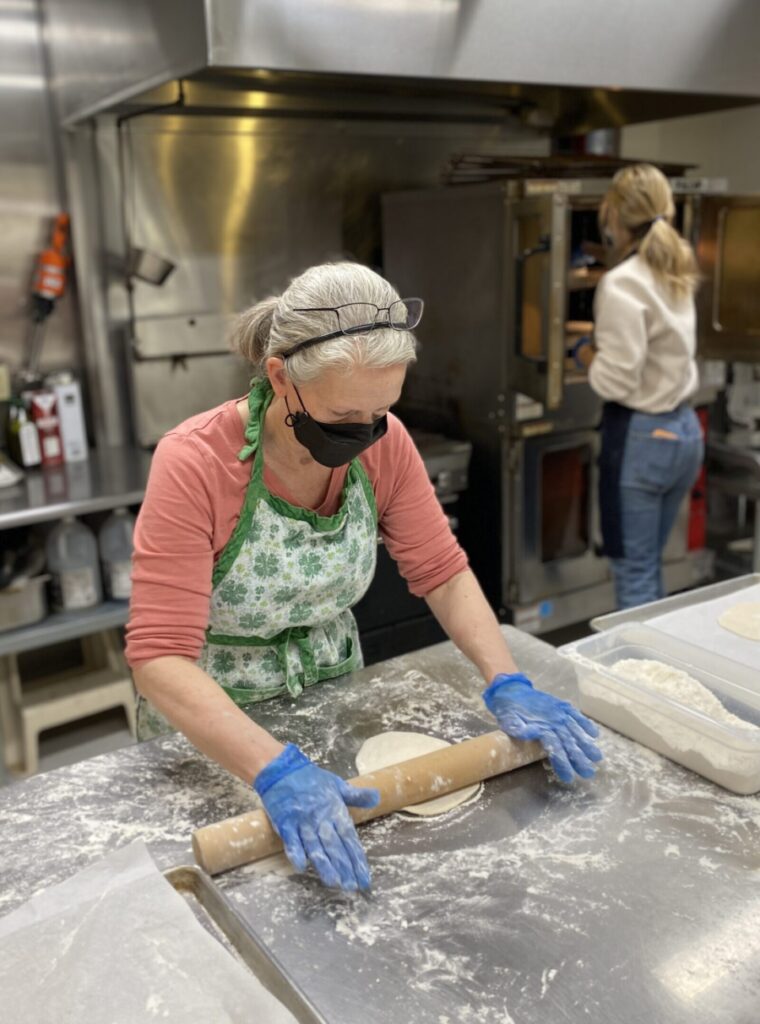
Growing demand
In the last year, demand for the Senior Community Meal program has risen significantly. The program served nearly 600 more meals in February 2023 than in February 2022, an increase of 36 percent. This is in part due to increased need. Between rising food prices and the end of many COVID-19 relief programs, many seniors living on fixed incomes are feeling their purchasing power decrease. But the program is also seeing more diners simply because word is spreading about the quality of the meals. Nutrition guidelines for HIP’s Senior Meal and other programs like it require that meals include a protein, fruit, vegetable, and a grain, and also offer milk. However, David and the team go well above and beyond the minimum requirements and also provide desserts, sauces and condiments, and garnishes.
Let’s take a look at a recent Senior Meal lunch, which incorporated David’s homemade pita for the first time. The meal featured spiced roasted chickpeas with a dill lemon sauce, served over pita. The meal also came with an arugula salad with pickled onions and radish, a freshly-baked peanut butter chocolate square, and a pear. When asked about her lunch, Janice, a longtime program participant, burst into praise about David and his meals. “I just love what he makes. We’re so lucky to have him,” she exclaimed, then added, “I don’t even like chickpeas, but I like these!”
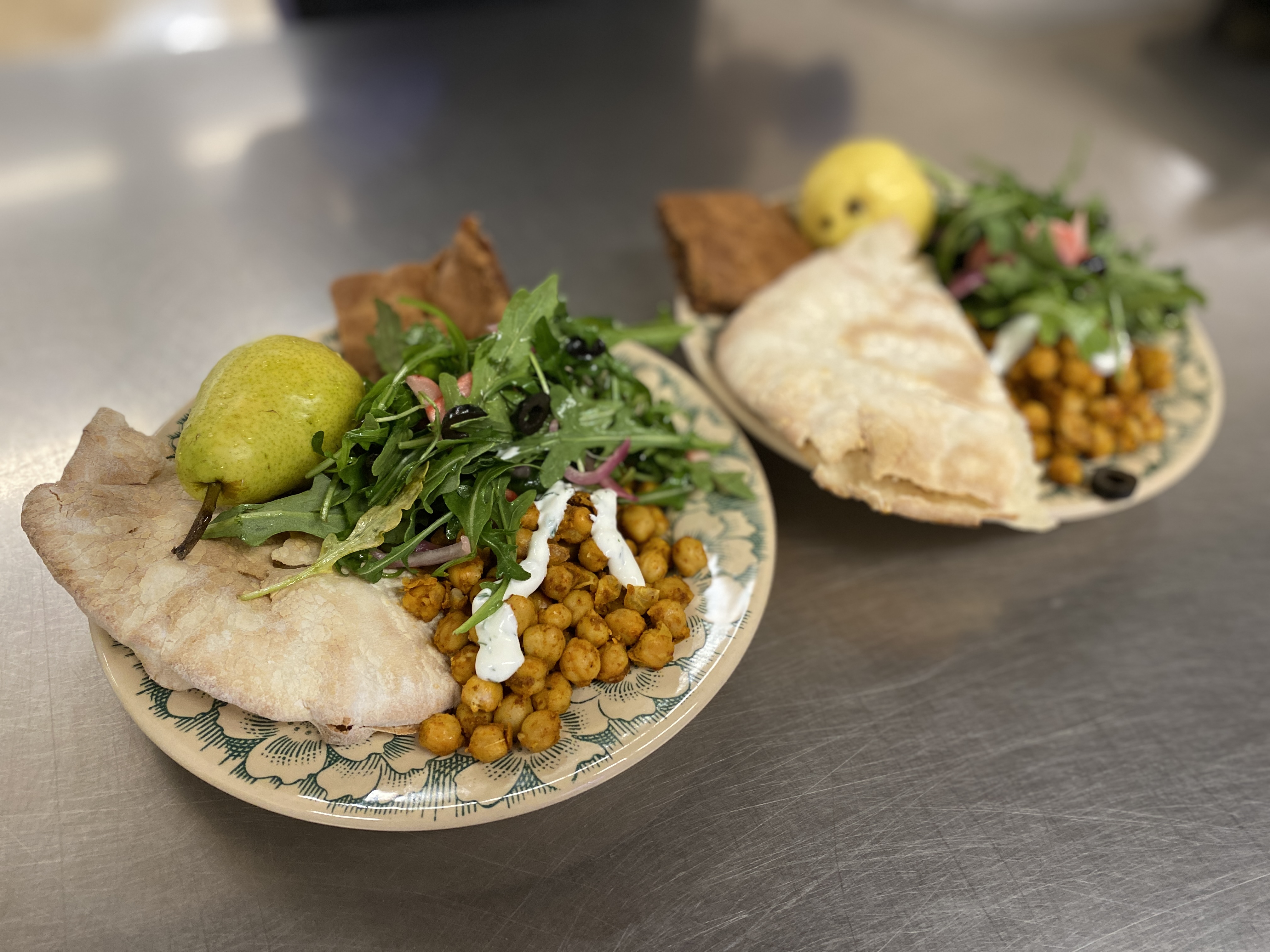
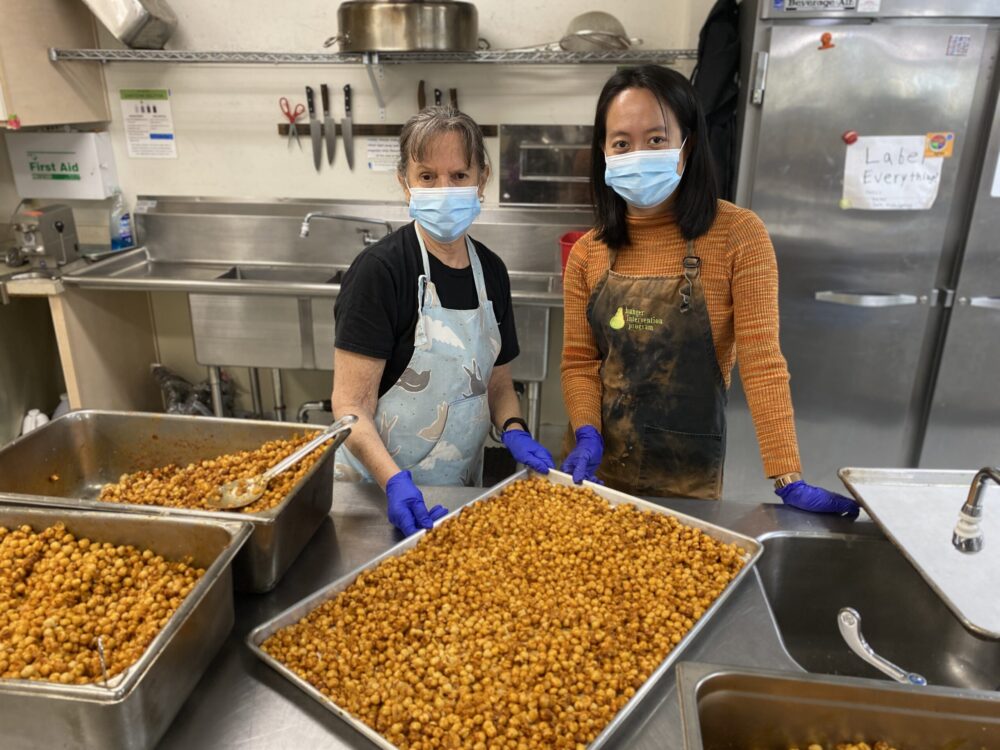
Other diners agree. In a recent survey of program participants, 91 percent of respondents rated the quality of the meals as either excellent or good. 98 percent said they would refer a friend, and many mentioned that they already had. Janice explained that she could “absolutely” tell the difference when David began removing processed foods, “and everybody else could too.”
The responsibility of a chef
The Senior Community Meal is all about providing seniors with access to nutritious food through a shared dining experience. To David, it’s irrelevant whether seniors participate in the program because of need or simply because they enjoy the food and atmosphere. What’s most important is that when seniors receive their lunches, they can be confident that their meal was thoughtfully prepared with both their nutritional needs and their taste buds in mind.
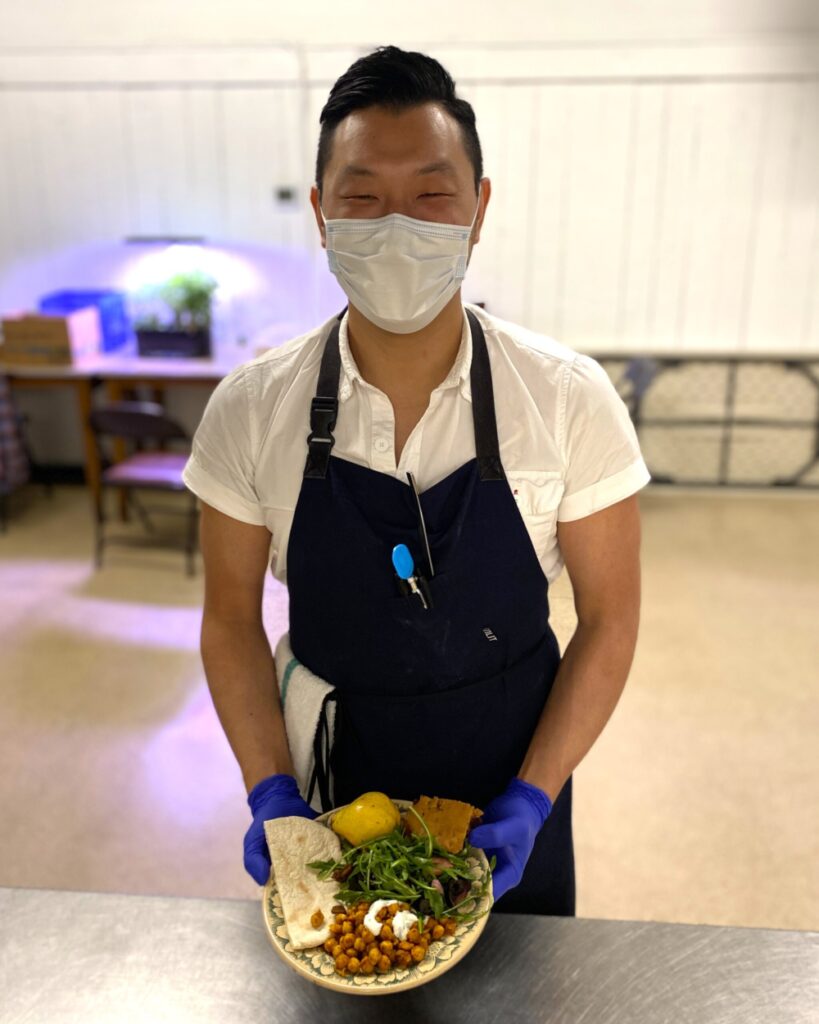
It’s virtually impossible to eliminate all ultra-processed foods while also having a diverse and fun menu. Some items, like sausage and tortillas, are simply too time-intensive to prepare in-house, but also too beloved to remove from the menu. But David is determined to push the limits and remove as many of these foods as he can. For him, it’s all part of the job. “As a professional cook, this is what we’re trained to do…to do the right thing, even when it’s harder.”


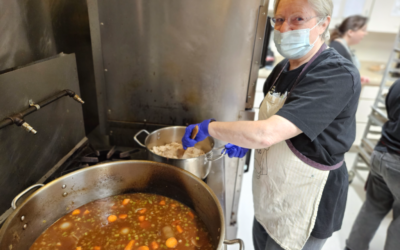
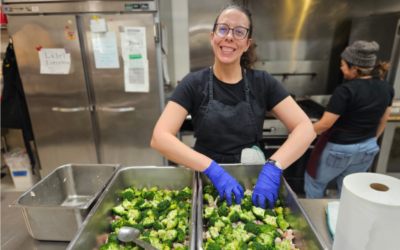

0 Comments